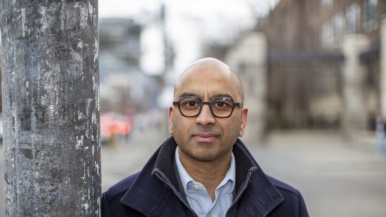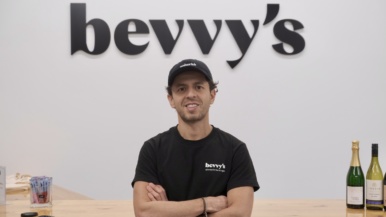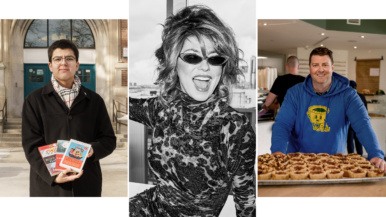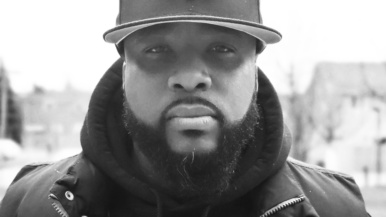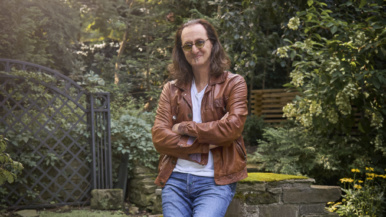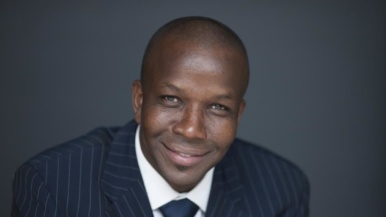Q&A: Workin’ Moms star and creator Catherine Reitman
She’s learning to love life as a celebrity, even if it means getting mobbed at Starbucks

Last season on Workin’ Moms, your character was sued for sexual harassment, talked to a deer on an acid trip and breastfed her lover. Is it fair to say you’re unafraid to push boundaries?
Well, it is scandalous to breastfeed one’s assistant while having sex with him, but I think that because my show has “mom” in the title, we are held to a more puritanical standard. Breaking Bad and Mad Men are about a teacher and an ad man who are doing outrageous things and we forgive them because it’s great television, but women and moms aren’t supposed to be sexual or selfish or make poor choices. The fact that this show doesn’t shy away from challenging those notions is why people have connected to it so intensely.
Workin’ Moms was picked up by Netflix about a year ago after three seasons on CBC. How has life changed for you?
At the risk of sounding vain, I’m in L.A. right now, and I get stopped every day. At Starbucks, at yoga, at the gas station. And it’s not just our target demographic. It’s executives and busboys, too.
The show is shot in Toronto and takes place here. Was that always the plan?
Yes! Toronto is spectacular. Our characters live in Rosedale, the Annex, Cabbagetown, the Financial District. I was delighted by the idea that we could make the show a Sex and the City for Toronto, where the city is a character. In the transition shots between storylines, we lean in to the graffiti, the street art, the homeless people walking cats on leashes.
Beyond scenery, are there other ways in which the show is particularly Canadian?
Yes. In fact, a few American networks complained early on that it was “too Canadian”—not just the location, but stuff like parental leave and abortion. The set-up in season one is mothers returning to work after 10 months of mat leave, and the fear was that American audiences would say, “Ten months of paid leave? What glorious utopian society is this?”
After Netflix said yes, did you want to go to all the networks that turned you down and have a Pretty Woman moment?
Absolutely. Like, Big mistake—huge! But I’ve dealt with rejection a lot in my career. Everyone needs an angel. For me, that was Sally Catto, the head of English programming at CBC. I think she was as starved as I was for stories about motherhood outside of the nursery.
Your husband, Philip, plays your husband on the show. To what extent is the plot based on actual experiences?
In season one, a lot. In the writers’ room, we used my marriage, my struggles during pregnancy, my experience with post-partum depression. But as the show developed, we started to make it more creative fiction. On the show, my husband has an affair with a nanny, for instance—that didn’t really happen. As my kids got older and developed their own personalities, I became more protective of them and began inventing storylines for them, too.
They must look at you sometimes and say, “Mom, this is not for the show.”
They’re under six, so we’re not there yet. But they’re getting used to people stopping me on the street. What’s weird is that I grew up with my dad getting stopped in restaurants, and I would get kind of annoyed by it.
Your dad of course being Ivan Reitman, famed director of Ghostbusters among many other films. Your brother, Jason, directed the new remake. Does that mean you’re next?
I don’t think so. I think it’s incredibly brave of Jason. I feel both exhilarated and terrified by association. I haven’t read the script, but I just watched the trailer with the rest of the planet and it looks so damn good.
The last time someone did a Ghostbusters remake, people freaked out about the female cast.
Before the movie even came out! It bothered me as a Ghostbusters fan and as a woman.
Women were largely shut out of the best director category of the Golden Globes this year. That must be frustrating.
It’s so disappointing. I spent my childhood identifying with male characters in films because females were relegated to girlfriend or best friend. It’s time for that to change—not only because choosing women is the right thing to do. Sixty-nine per cent of my key hires are female, and people have told me ours is one of the lowest-drama, highest-efficiency productions they’ve been part of. I don’t think that’s a coincidence.
